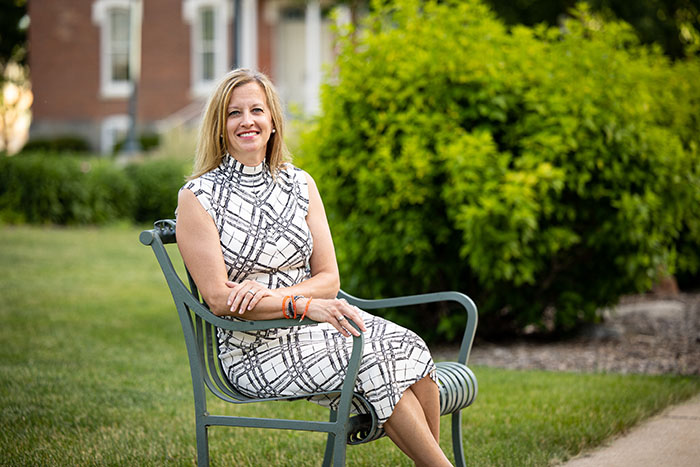
By Emily Christensen | Photos Julie Pagel Drewes ’90
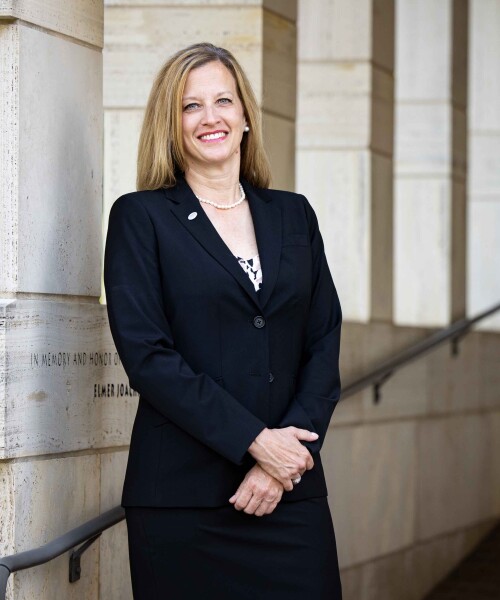
When Dr. Rebecca Neiduski was announced as the 18th president of Wartburg College on March 21, 2022, there were tears of joy in the Chapel as she ascended the stairs to accept the role. Women, both young and old, were excited to see themselves represented in the college’s presidency and listened raptly as Neiduski thanked everyone for the honor and privilege of serving Wartburg College.
In those first moments as president-elect, Neiduski laid out her dreams for the future of the college.
“I pledge to honor the work you have accomplished and continue to champion the importance of a faith-based liberal arts education and the empowerment it can offer. That is my commitment to each of you as we look forward to Our Brightest Days, as outlined in our strategic plan,” she said. “It’s difficult to overstate the power of higher education — more specifically, a liberal arts education that prepares people who are ready to engage in social discourse. Engaged citizens who are ready to approach their lives and the world with the ability to think critically and intentionally. To respect and honor the diversity of thought and identity of people around them. To accept ideas that are different than their own with curiosity and humility.
“Today, this is more important than ever before. I believe it is our shared responsibility to prepare the next generation to be inclusive and culturally competent individuals who can, quite literally, change the world,” she continued.
Since June, when she arrived on campus well ahead of her July 1 start date, Neiduski has, with the help of others, distilled a 122-page strategic planning document into four themes that will guide the work of the college in the coming years (see page 22); attended several conferences; met hundreds of alumni and supporters at events across the Midwest; begun meeting with college faculty and staff to learn more about their roles at the college; met with students who live on campus throughout the summer months; and continued to emphasize the importance of building an inclusive community through the spirit of ubuntu.
“I am committed to being in service to others and leading by example as we embrace and appreciate the value we bring to this place and to each other,” she said.
Neiduski came to Wartburg from Elon University, where she served as the dean of the School of Health Sciences; advanced diversity, equity, and inclusion efforts; and helped execute the university’s strategic plan.
Prior to Elon, she was the chair and program director for the Department of Occupational Therapy and a professor of occupational therapy at Concordia University Wisconsin from 2013 to 2017. She also was an associate professor of occupational therapy with tenure at Maryville University from 2002 to 2013.
A certified hand therapist, Neiduski also sits on the board of directors for the Guatemala Healing Hands Foundation. The organization’s highly specialized team of surgeons, therapists, anesthesiologists, nurses, and volunteers provides comprehensive training and education to health care providers and students in Guatemala; screens more than 200 children with traumatic injuries and congenital limb differences; and provides training for and maintains connection with local therapists who provide post-operative care.
She earned a Bachelor of Arts in movement and sport science from Purdue University, a Master of Science in occupational therapy from Washington University in St. Louis, and a Doctor of Philosophy in education from Saint Louis University.
Why Wartburg? Why now?
From my first Zoom interview, it was clear to me that Wartburg is a special place. The loyalty of families, faculty, staff, the board, and the local community to our college is unique in higher education, and I couldn’t pass up the opportunity to be part of it.
When did you know you wanted to be an occupational therapist?
As a high school athlete, I headed off to Purdue University ready to be an athletic trainer. My career goals evolved toward physical therapy as I began my undergraduate journey, and then I heard an occupational therapist speak as part of a health professions panel. The intersection of creativity, adaptation, and client-centered care were a perfect match for my interests and characteristics.
Why did you specialize in hand therapy?
The complex anatomy and function of the hand has always intrigued me, and the practice of hand therapy often feels like a challenging puzzle waiting to be solved. Helping people regain function of their hands to participate in life is incredibly fulfilling.
Why did you choose to invest your time in education?
When I started teaching occupational therapy students, it became immediately obvious that I could both contribute to the profession as a whole and extend my reach to so many more patients through the students I helped prepare.
And why the switch to administration and now a presidency?
Throughout my career as a therapist, educator, and leader, I have taken great pride in helping others accomplish more than they thought possible. I look back and recognize that from a very young age, my father served as an incredible role model as an administrator and leader in Lutheran education. I feel called to serve others through leadership, and the presidency of Wartburg College will afford me the privilege of working together with our students, staff, faculty, and stakeholders to continue to advance this fantastic institution.
You had the opportunity to spend three weeks on campus before your official start date. Why did you feel that was important?
I chose to spend three weeks with President (Darrel) Colson for two specific reasons. First, I wanted to spend intentional time learning from him and gathering his reflections on his tenure as Wartburg’s 17th president. Second, I wanted to demonstrate my commitment to learning about Wartburg College prior to beginning my presidency and build trust with those who work and learn here.

What did you learn?
Without question, I learned that Wartburg College is blessed with faculty, staff, and stakeholders who are wholly committed to ensuring our prosperous future. People here care about each other, take tremendous pride in their work, and keep our mission of challenging and nurturing students for lives of leadership and service at the center of everything they do.
How did that help you as you moved from president-elect to president?
By July 1, I had been warmly welcomed by the campus community and had a starting sense of the work we are now pursuing together for the benefit of Wartburg College.
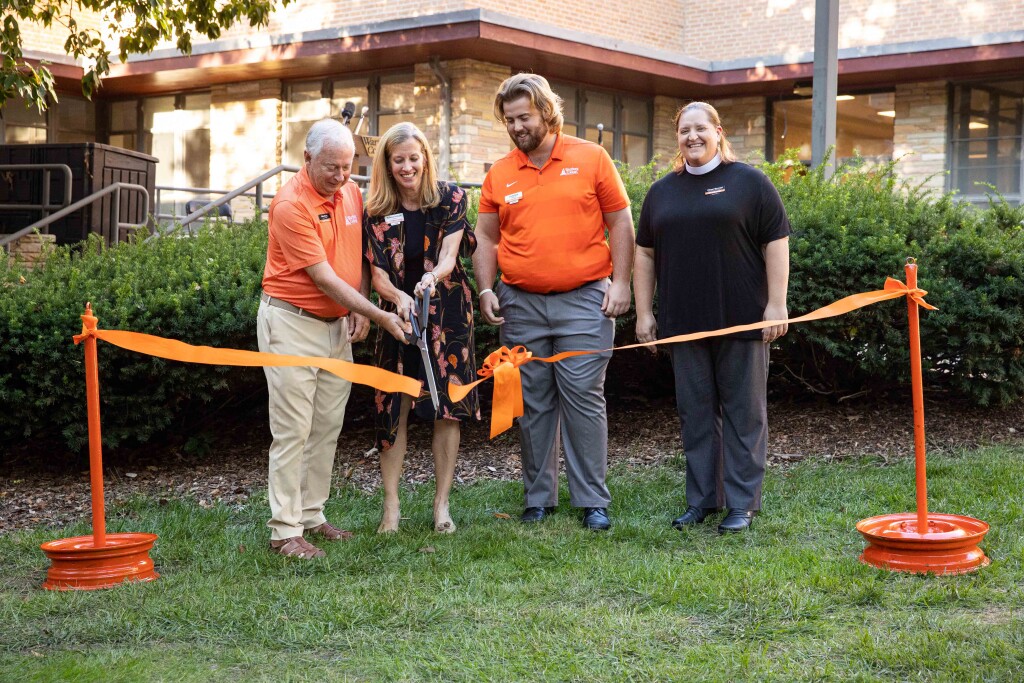
You already have spent a lot of time with the college’s new strategic plan, Our Brightest Days: Realizing Purpose, Leading Change. What excites you the most about the new plan?
I am most excited about the number of people, both on and off campus, who have served as leaders and thought partners in building the plan. The plan focuses on four main themes: Educating Mind, Body, and Spirit; Inclusive Community; Student Success; and Competitive Advantage. These themes will help us educate the whole person; prepare our students for a changing world; realize our distinction; and continue to attract and retain students, faculty, and staff within a dynamic and supportive community.
How do you see the college leaning into that work in the coming months and years?
The strategic plan will serve as the lens we look through to see and direct our shared work. Annual priorities will help us stay both goal-directed and focused on the work that will advance Wartburg College and ensure our prosperity.
What is your goal for your first six months in office? First year?
My goal for the first six months is to fully engage with our campus community, spending time getting to know and value our students, staff, and faculty. Within the first year, I hope to have met many alumni and stakeholders and learned why Wartburg holds a special place in their hearts. And of course, I hope that by the end of our first year together, our community has made strides in achieving our strategic plan and continuing to attract and retain students, faculty, and staff.
You talk often about how you would like to engage with our students. Why is being accessible to them so important to you?
Our students serve as the center point of everything we do. Educating them in mind, body, and spirit and helping them grow as citizens of our world is why we are called to higher education. Being accessible to them means that I care about them and am excited to see who they will become during their time at Wartburg.
How do you see yourself engaging with them throughout the year?
Honestly, in as many ways as possible! Service learning has been an integral part of my work in academia, and I will certainly find ways to serve alongside our students both on campus and in the community. But the simple ways, like a cup of coffee in the Konditorei or a quick chat on a walk across campus, will be important too. And of course, I’ll be supporting their co-curricular pursuits whenever possible.
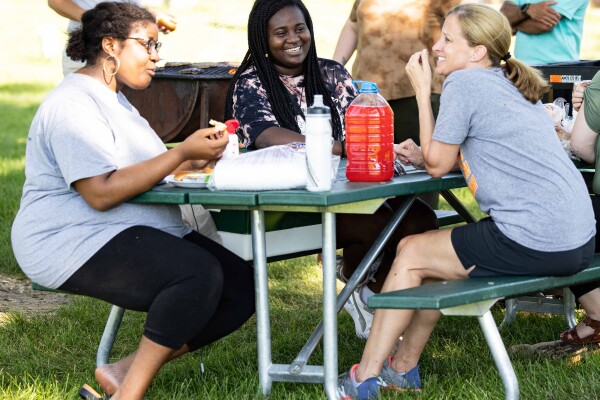
What about faculty and staff? How will you build relationships with them?
In addition to creating listening sessions with all departments and divisions on campus, I intend to follow the advice two wise administrators offered as I began my presidency: to engage in campus life and see people at work. Observing classes, interacting with staff throughout campus, and appreciating the effort of our faculty and staff through the eyes of the students will be important to building relationships and trust.
How would you describe your leadership style?
I have always been a servant-leader: someone who encourages diversity of thought, strives to create a culture of trust, fosters leadership in others, and prioritizes institution over self. As I have grown as a leader, I have found the greatest satisfaction in working closely with a team to pursue exciting and challenging opportunities.
What do you see as the greatest challenge facing higher education?
In my opinion, the greatest challenge will be attracting and retaining students. With a proliferation of negative media about the cost and equity of higher education, families will continue to expect greater outcomes at competitive prices.
What advantage do you think Wartburg has when facing that challenge?
Our advantage is our people and the holistic educational experience we create. Together, we will continue to build on our traditions and ensure that the educational experience we provide exceeds the expectations of our students and their families.
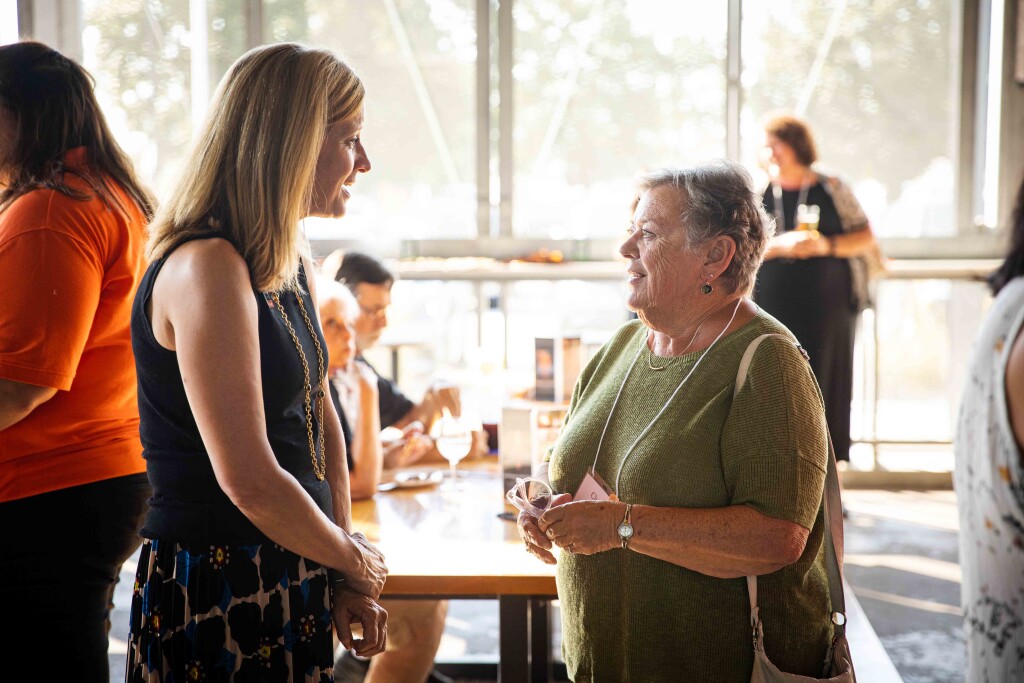
At Wartburg, we talk a lot about embracing our passions. What are you passionate about? How do you make time to engage in those passions?
I am passionate about serving others and have spent a significant amount of time participating in medical outreach and education around the world. In November, I will return to Guatemala for the 19th time with the Guatemala Healing Hands Foundation. Wartburg College has been incredibly generous in allowing me this time to continue to serve as part of my presidency.
How did you get involved with that work and why have you continued to make it a priority in your life?
My work in Guatemala began when I met Lynn Bassini, a beloved mentor and friend, on my way to a professional conference. Born and raised in Guatemala, she shared her plan to create the Guatemala Healing Hands Foundation and I was immediately intrigued. I joined the team for the first time in 2005, and we have returned once every 18 months to two years ever since. I have continued to make it a priority because of the incredible relationships I have built both with the people of Guatemala and our team members. I count the Guatemalan therapists I have been privileged to teach and learn from as lifelong friends and colleagues, and our team members as family.
You speak highly of another mentor as well. Can you tell us more about her and the role she has played in your life?
Christine Novak, a highly accomplished researcher and physical therapist, served as my master’s project chair at Washington University in St. Louis. For the past 26 years, Chris has pointed me toward opportunities and encouraged me to reach further than I thought I could. She has also served as an unwavering supporter and friend during the most challenging times of my life.
